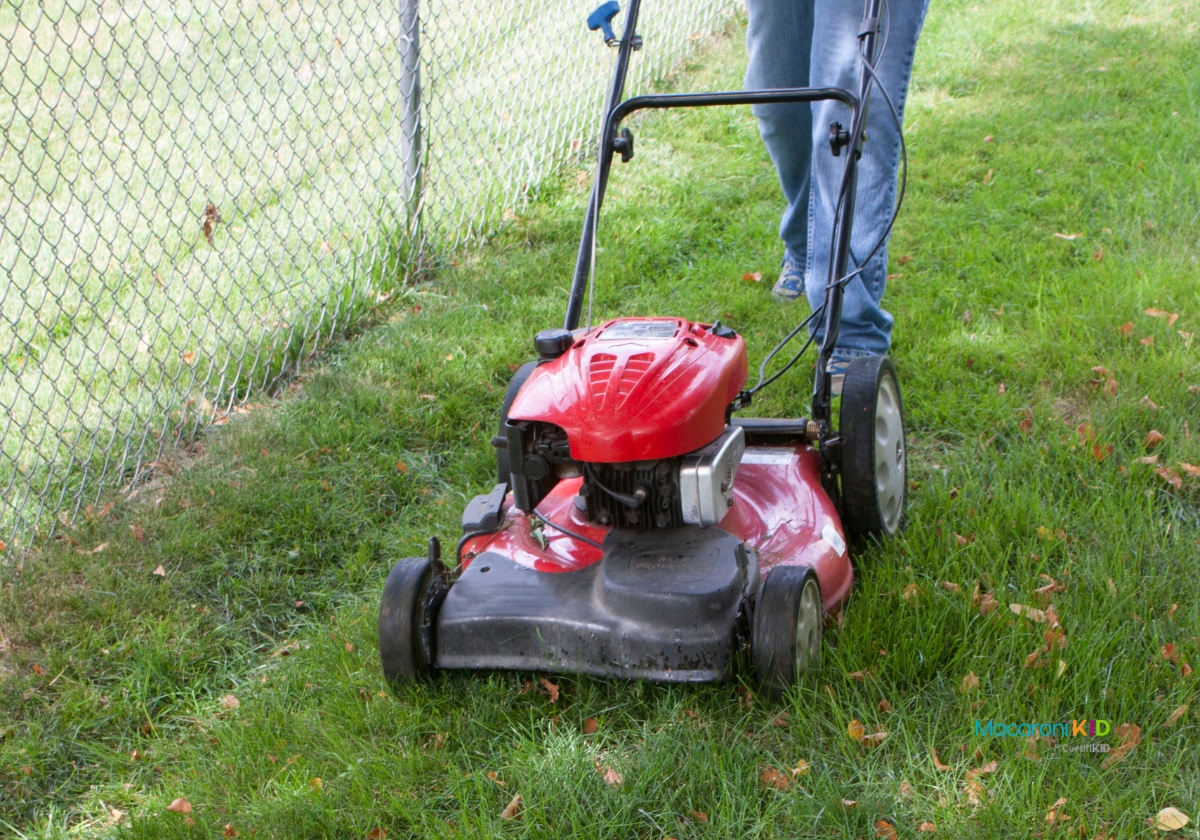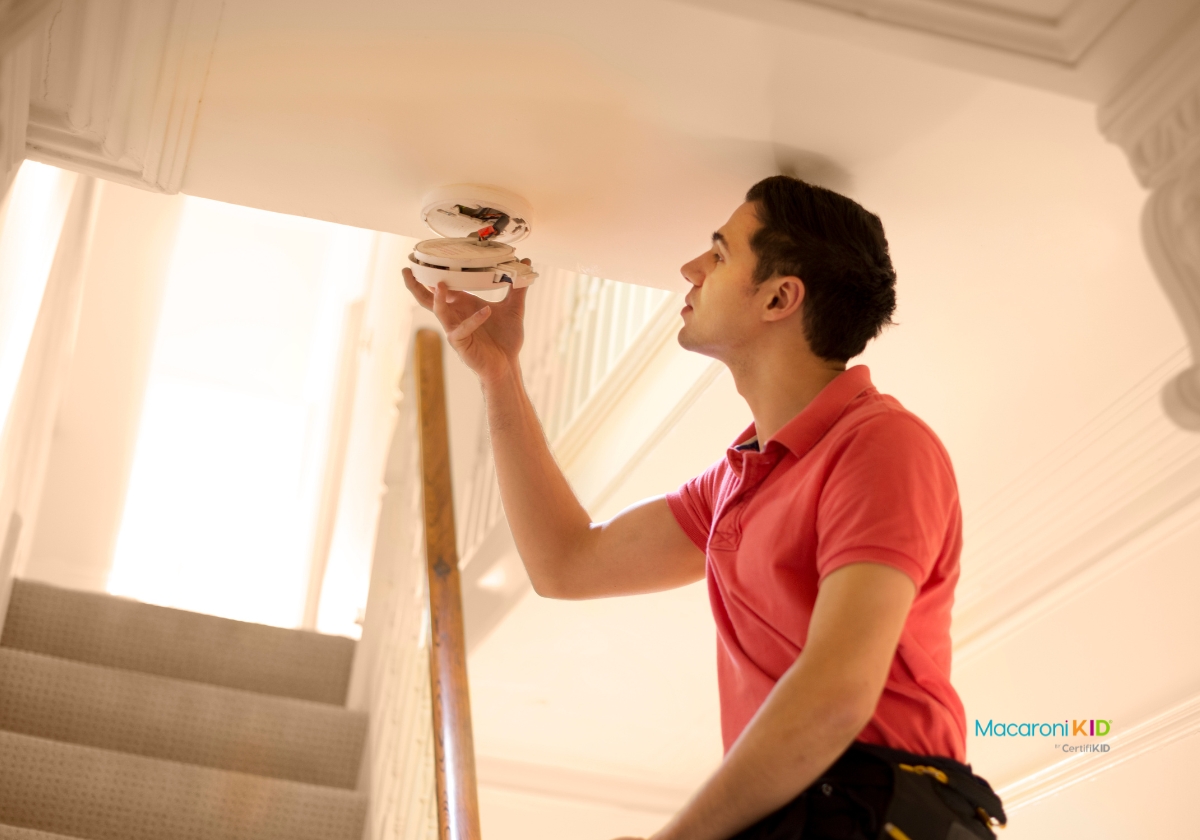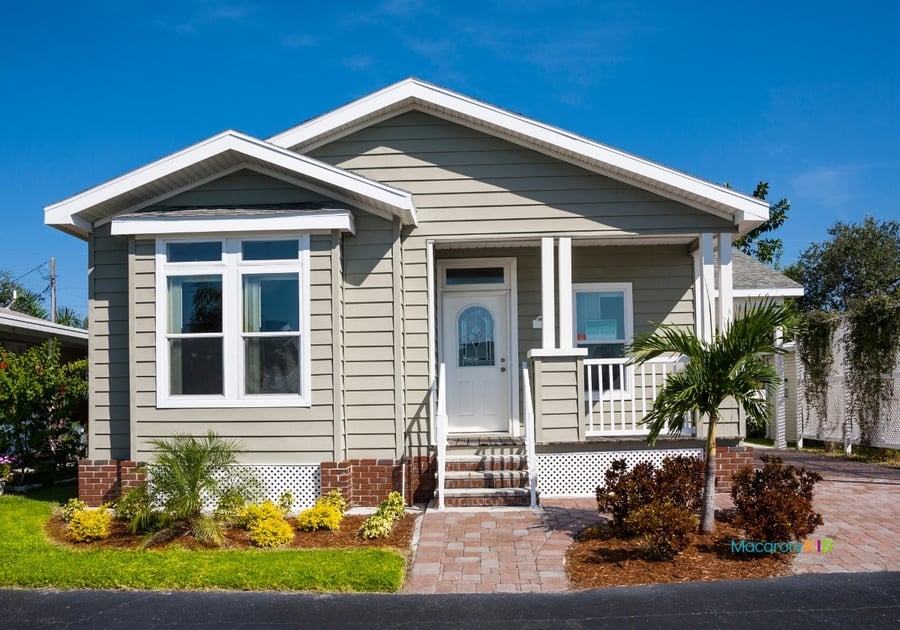While some of us (me!) are in denial about the upcoming cold weather months, the fact is that we need to prepare ourselves before the first storm arrives. Even if you live where winters are mild, it's still a good idea to tend to these maintenance tasks and prepare for unexpected cooler temperatures.
Here are 10 things you can do to prepare your house for winter:
 SBSArtDept via Canva |
1. Mow your lawn one last time
Keeping the grass blades at about 2.5 to 3 inches allows it to stay healthy during the winter.
2. Check your gutters
You want to make sure that your gutters are clear of debris to prevent them from overflowing during heavy rain or water getting trapped and freezing.
3. Clear the yard
Look around your yard for tree branches that are hanging over the house, trees that are dead or have dead branches, and any other hazards. Winds and heavy snow can cause these trees and branches to become weak and break. Removing them in advance saves you from possible damages or injuries later.
4. Cover your air conditioner condenser box
Covering the AC condenser box prevents ice and snow from getting inside and prolongs the life of the unit.
5. Cover your outdoor faucets
Be sure to remove the hose, drain it, and store it for the winter. Cover your faucet with a cover to keep it from freezing. You can get these from your local hardware store. They typically come either as a fabric “sock” that slides over and a string pulls it shut, or as a plastic or Styrofoam cover that just slides on. The sock is a little more expensive but is less likely to fall or blow off of the faucet.
 sturti via Canva |
6. Check your smoke detectors and carbon monoxide detectors
Be sure to change the batteries AND test the detectors. Most detectors have an expiration date on them. According to the U.S. Fire Administration, smoke detectors are usually good for about 8-10 years. However, combination smoke and carbon monoxide detectors are only good for about 5-6 years.
This is also a good time to review your fire evacuation plan with your family.
7. Check your thermostat
If you don’t already have a programmable or smart thermostat, you should look into them. They can save you money by automatically adjusting the temperature in your house and using less gas or electricity.
If you plan to be gone from your home for an extended period of time, be sure the thermostat is set to at least 65 degrees to prevent freezing pipes.
8. Have your chimney checked
If you plan to use your fireplace this winter, you want to be sure to have your chimney checked by a professional before you need to use it. A professional will check for build-up and cracks, the chimney cap, and the damper and make sure that everything is working properly.
Also, if you have a wood-burning fireplace, now is a good time to restock your firewood.
9. Check your sump pump if you have one
Heavy storms and melting snow can cause your sump pump to work extra hard. Be sure that it’s in good working order and have a backup on hand in case it stops working.
It’s also a good idea to have a battery backup connected to your sump pump in the event that the power goes out. You can purchase a battery backup from your local hardware store and install it yourself.
10. Create or update your emergency kit
While we all hope that we’re not going to need it, it’s never a bad idea to have an emergency kit prepared. Very basic emergency kits should include bottled water, blankets, flashlights with extra batteries, a battery-powered radio, and snacks.
A more thorough kit may include additional items like medication, shelf-stable foods (energy bars, crackers, canned food, dry rice, and beans), an extra change of clothing and/or coats, a battery or hand crank charging source for your phone, and a generator. If you tend to get a lot of snow, you may also want to have an extra shovel handy.
Jenny Sites is the publisher of Macaroni KID Fredericksburg - Spotsylvania - Stafford, Va.



